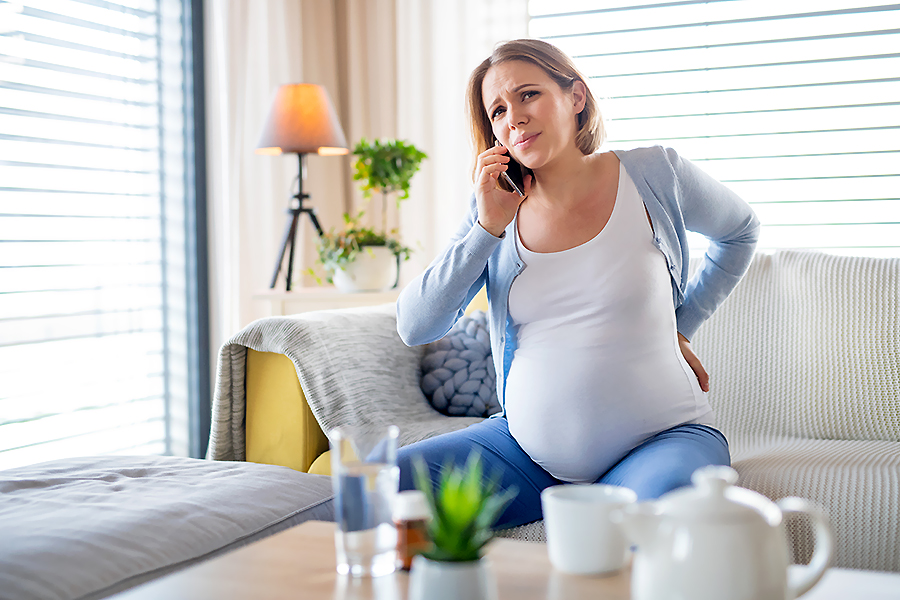How Pregnancy-Related Changes Impact Your Spine
Pregnancy changes the body in many different ways. Women gain between 20 and 25 pounds. There is also a shift in their point of gravity. Hormones and anatomy change every month. Often, these pregnancy-related changes impact your spine drastically.
As a result, the following changes can occur:
Posture modifications: As the uterus grows, the spine curvature changes. This increases mechanical loads on the lower back. And stress on the lumbar facet joints and discs increases. Pelvic rotation also occurs at S2 and S3. This increases as the lumbar spine curve get more pronounced.
Muscle tone and balance: The lower back is supported by paraspinal muscles. These shorten and become unbalanced as abdominal muscles stretch.
Sacroiliac joints: The hormone Relaxin increases tenfold during pregnancy. This causes the connective tissue in the pelvis and back to soften. Therefore, this results in discomfort in the sacroiliac joints.
Pelvic joint: The pelvis is a stabilizing structure. It transfers loads from the upper body to the legs. Changes to posture, hormones, and walking stress ligaments in the area. Therefore, the force on the pelvic joints increases. There is also an impairment to load transfers when active. And this causes excess stress to pelvic ligaments.
Spinal discs: In rare cases, pregnancy can cause herniated lumbar discs. The body changes and increased stress are the cause. A herniated disc can irritate or inflame nerve roots in the lower back. The result will be sciatica pain radiating to the leg.
Transient osteoporosis: The additional weight-bearing can cause transient osteoporosis. It develops suddenly, causing a reduced range of motion and pain.
In addition to these, previous conditions can become worse, such as:
- Rheumatoid arthritis
- Idiopathic scoliosis
- Ankylosing spondylitis
Pain and symptoms can worsen with pregnancy. Also, certain women are at higher risk for more severe back pain, including:
- Very young women
- Women of advanced maternal age
- Women with a history of back pain during menstruation
When to See Your Doctor
Most women consider back pain to be a part of pregnancy symptoms. Therefore, it often goes untreated. But back pain should be managed to make the pregnancy more pleasant and to facilitate an easier delivery. In fact, back pain management is always a good idea during pregnancy. There are a few things that indicate you should see your doctor right away.
Long-lasting lower back pain. Pain lasting several weeks or months indicates postpartum pain. Seek appropriate treatment to prevent pain in later stages. Postpartum pain that lasts longer than 6 weeks can be problematic. This needs to be treated to avoid recurring back pain. Treatment will make delivery easier. It also reduces the risk of recurring future pain. Chronic pain can develop that will interfere with the quality of life.
Additional symptoms: If pain is present with any of these symptoms, seek medical attention, such as:
- Vaginal bleeding
- Groin pain
- Feeling faint
- Tarry stools
This could indicate a ruptured ectopic pregnancy. This is a medical emergency that requires immediate treatment.
Chronic lower back pain can indicate preterm labor or ectopic pregnancy. Any concerns about lower back pain should be discussed with your doctor. This will reduce the risk of any danger to the fetus. If you suspect pregnancy-related changes impact your spine, call us at 888-409-8006.


I am glad to be one of the visitants on this outstanding web site (:, thanks for posting.